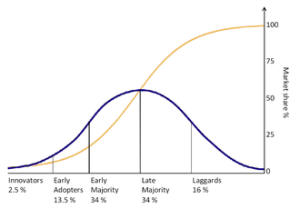 Figured it was time to give another update on my voyage of discovery as it relates to networking.
Figured it was time to give another update on my voyage of discovery as it relates to networking.
Some time ago, Amy arranged an opportunity to meet Jason Seiden during his stop over through SFO. Being the hanger-on that I am I asked her if I could meet him too. As the logistics unfolded, it worked out that I would meet him for drinks and Amy would meet him for dinner.
When Jason arrived early, he sent me a message saying that he would meet me in the bar where he’d be making friends. When I got there, that was exactly what he was doing!
There Jason was, chatting it up with some random guy, as if they were long lost buddies. I made a comment that the whole ice breaking thing was very hard for me, and I couldn’t imagine doing that myself.
His reply really stuck with me. He said “I used to have trouble with it, until I realized I was just being an A**hole“.
To this I responded [with what I considered a witty retort] “I don’t think I’m an A**hole…. but maybe I’m wrong.”
and then the conversation moved on
As I have done more thinking about this, I realize there is a lot of truth to the idea that to effectively network you have to get over yourself. Making it the responsibility of the other person to break the ice is inherently arrogant.
This led me to the belief that, we need to get over our idea that we are center of the universe to make progress professionally.
Networking just happens to be one example.
What we are feeling inside is that we are not important or interesting enough to step outside our comfort zone and connect with others.
but
what we are really doing is suggesting that we are too important to bother taking the risk.
Having an honest intention, is really not the point. The results are what matter and in this case, my results were a raft of missed opportunities.
Scary, powerful and actionable.
I am doing my best to learn that, moving forward professionally requires taking risks and challenging my perspective. While I would not call myself an expert by any stretch, I can honestly say I’m making progress.
I no longer listen to that voice inside that tells me I have nothing of interest to say. Instead, I listen to Jason’s voice in my head, that says quit being an A**hole Meg!
If nothing else it makes me smile, and since that is another goal I figure I’m ahead.




